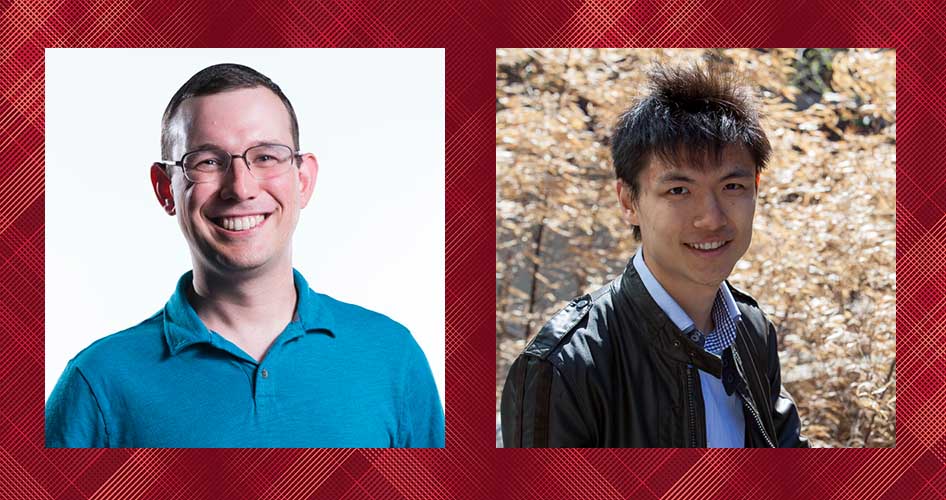SCS Researchers Receive More Than $1.5M in NSF CAREER Awards
Marylee WilliamsTuesday, April 16, 2024Print this page.

Two Carnegie Mellon University professors in the School of Computer Science received Faculty Early Career Development Program (CAREER) awards from the National Science Foundation totaling $1.5 million. The awards are the foundation's most prestigious for young faculty researchers.
Joshua Sunshine, an assistant professor in the Human-Computer Interaction Institute and the Software and Societal Systems Department, received roughly $850,000 to address underlying issues in software testing used in scientific programming.
His research motivation stemmed from a class he teaches called Crafting Software, which is geared toward students not studying computer science. Sunshine said there's a skills and tools gap in software testing for science researchers. They write and use software programs, but their computer science education isn't as focused on testing. When researchers aren't taught the best testing practices to assess if their software works correctly, they can get incorrect results, which — in some cases — can lead to poor decision-making. There also aren't accessible tools to automatically detect faulty code. Often the only indicator that something isn't working is when the code crashes.
"One of the challenges in science is that the main way people assess if the code they wrote worked is that it ran and they got a result," said Sunshine. "But how do they know it did the right thing? Hopefully, they looked at the code carefully, but there are subtle things that are easy to miss manually. We would like people to be able to say what they expect the software to do in a whole bunch of situations and then be able to automatically assess whether that's true."
With this award, Sunshine hopes to release software testing materials that help scientific researchers across the world.
Steven Wu, also an assistant professor in the HCII and S3D and part of CMU's CyLab Security and Privacy Institute, received a $680,000 award to advance privacy-preserving machine learning and data sharing.
Numerous organizations in both the public and private sectors have turned to differential privacy to safeguard individual data. But differentially private algorithms add noise to the training process to ensure privacy protection, often leading to the degradation of predictive accuracy. Many practitioners find it difficult to manage such a privacy-accuracy trade-off.
"This is an exciting and critical time for data privacy research. The U.S. Census Bureau and many tech companies have adopted differential privacy as a privacy-enhancing technology. These practical deployments often point to new, exciting and fundamental research questions," Wu said. "Of course, the era of generative AI has also added new dimensions to privacy research. What does it mean to protect individual privacy in the use of large language models? Can we use modern generative models to create synthetic datasets that are useful for researchers but do not compromise privacy? We are only beginning to understand these questions in the years to come."
With this award, Wu plans to develop new material for his course Foundations of Privacy and to share new data privacy toolkits to support practitioners.
Giulia Fanti and Akshitha Sriraman, assistant professors in CMU's College of Engineering with courtesy appointments in the Computer Science Department, also received NSF CAREER awards. Learn more about the funding opportunities on the NSF website.
Aaron Aupperlee | 412-268-9068 | aaupperlee@cmu.edu
